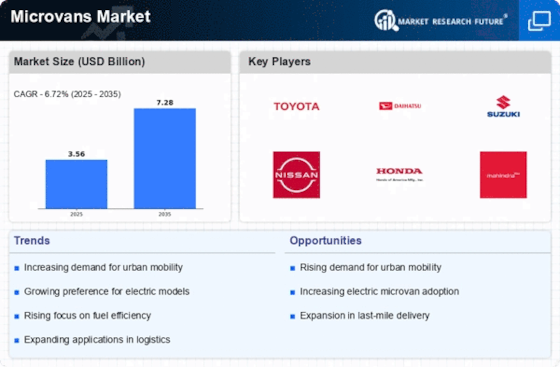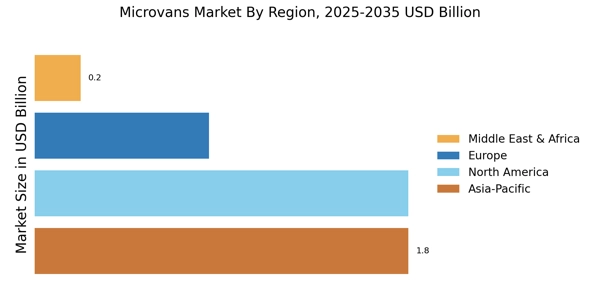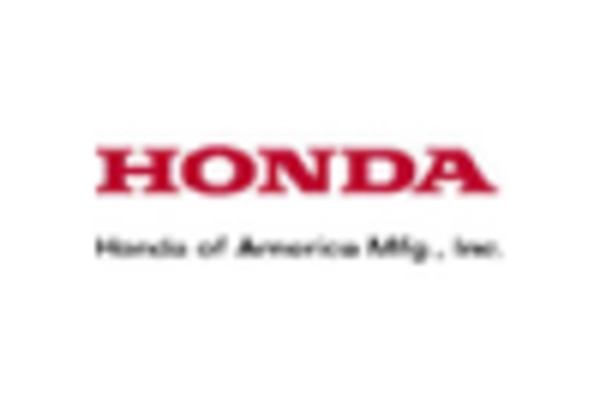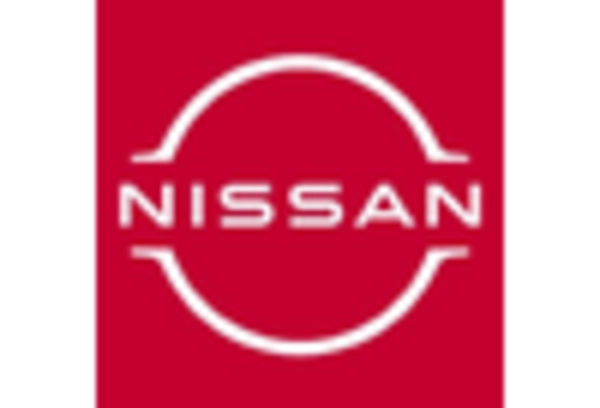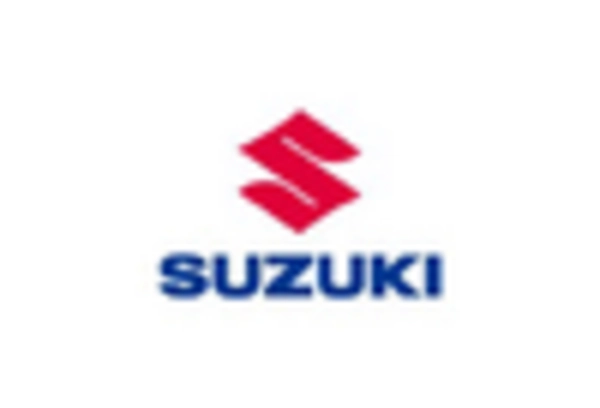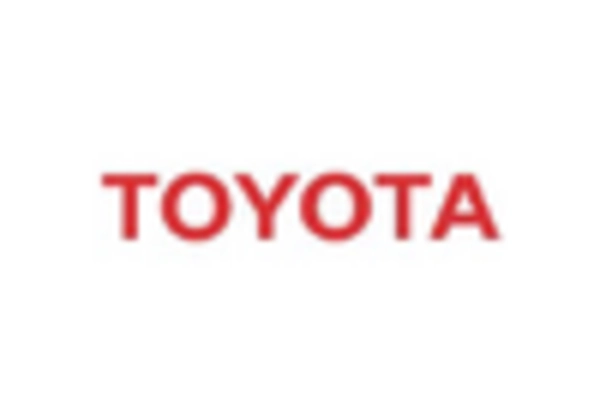Government Regulations and Incentives
Government regulations aimed at reducing emissions and promoting fuel efficiency appear to be influencing the Microvans Market. Many countries are implementing stricter emissions standards, which encourages manufacturers to develop more environmentally friendly vehicles. Microvans Market, often designed with smaller engines and better fuel economy, may benefit from these regulations. Additionally, various governments are offering incentives for businesses and consumers to adopt greener vehicles, which could further stimulate demand for microvans. As these policies evolve, they may create a more favorable environment for the Microvans Market, encouraging innovation and investment in sustainable transportation solutions.
Urbanization and Demand for Microvans
The increasing trend of urbanization appears to be a primary driver for the Microvans Market. As more individuals migrate to urban areas, the demand for compact and efficient transportation solutions rises. Microvans Market, with their ability to navigate congested city streets and provide ample passenger and cargo space, are becoming increasingly popular. According to recent data, urban areas are expected to house over 68% of the world's population by 2050, which could lead to a surge in demand for microvans. This shift in demographics suggests that manufacturers may need to adapt their offerings to meet the specific needs of urban dwellers, thereby influencing the Microvans Market significantly.
Rising E-commerce and Delivery Services
The expansion of e-commerce and the growing need for last-mile delivery solutions are likely to propel the Microvans Market. As online shopping continues to gain traction, businesses require efficient vehicles to transport goods to consumers. Microvans Market, with their versatile design and fuel efficiency, are well-suited for this purpose. Recent statistics indicate that the e-commerce sector is projected to reach a valuation of over 6 trillion dollars by 2024, which could lead to an increased demand for microvans in logistics and delivery services. This trend suggests that companies may increasingly invest in microvans to enhance their delivery capabilities, thereby impacting the Microvans Market.
Technological Advancements in Vehicle Design
Technological advancements in vehicle design and manufacturing processes seem to be a significant driver for the Microvans Market. Innovations such as lightweight materials, improved aerodynamics, and advanced safety features are enhancing the appeal of microvans. These developments not only improve fuel efficiency but also increase the overall performance and safety of the vehicles. As manufacturers continue to integrate cutting-edge technology into their designs, the Microvans Market may witness a shift in consumer preferences towards more technologically advanced options. This trend suggests that ongoing research and development will play a crucial role in shaping the future of microvans.
Changing Consumer Preferences for Versatile Vehicles
Changing consumer preferences towards versatile and multifunctional vehicles appear to be driving the Microvans Market. As lifestyles evolve, consumers are increasingly seeking vehicles that can accommodate various needs, from family transportation to commercial use. Microvans Market, with their spacious interiors and flexible seating arrangements, are well-positioned to meet these diverse requirements. Market data indicates that the demand for vehicles that offer both passenger and cargo capabilities is on the rise, suggesting that microvans may become a preferred choice for many consumers. This shift in preferences indicates a potential growth trajectory for the Microvans Market, as manufacturers adapt to meet the evolving demands of the market.


